Life is a complex interplay of biology, chemistry, and psychology. In our quest for a long, healthy life, we often overlook the profound connection between our behavior and our well-being. This article delves into the chemistry of behavior from both modern psychological and spiritual Vedic Hindu perspectives, revealing how it impacts our lives and the path to a century of existence.
Biology: At the core of our existence is biology, which encompasses the functioning of our physical body. It includes processes such as respiration, circulation, digestion, and the intricate workings of our organs and systems. A healthy biological foundation is the bedrock upon which longevity can be built. Physical health affects mental health, and vice versa, creating a symbiotic relationship.
Chemistry: Chemistry, at a molecular level, plays a pivotal role in shaping our behavior and mental states. Neurotransmitters, hormones, and other chemical messengers in our body directly impact our emotions, moods, and behavior. For instance, the release of serotonin is linked to feelings of happiness, while an excess of cortisol, the stress hormone, can lead to anxiety and negative behavior patterns.
Psychology: The psychological dimension encompasses our thoughts, emotions, and behaviors. Our past experiences, upbringing, and environmental factors contribute to our behavioral patterns. Understanding these psychological factors and the role of cognitive processes in decision-making is crucial. Our mental and emotional states directly influence our behavior and, in turn, our overall well-being.
By recognizing the intricate connection between these aspects of our existence, we can appreciate the holistic nature of human life. The interaction between biology, chemistry, and psychology forms the canvas upon which we can paint the portrait of a long and fulfilling life.
The Modern Psychological Perspective:
Neurotransmitters and Emotions: In the modern psychological view, our emotions are intricately linked to neurotransmitters in the brain. Chemical messengers like serotonin, dopamine, and oxytocin play a crucial role in shaping our behavior. For instance, serotonin is linked to feelings of well-being and happiness, while dopamine is associated with motivation and reward.
Hormones and Stress: The hormonal response to stress can have a profound impact on our behavior. Cortisol, known as the “stress hormone,” can lead to negative behavior patterns if it remains chronically elevated. Managing stress through relaxation techniques and positive coping mechanisms is essential for maintaining a healthy lifestyle.
Behavioral Patterns: Modern psychology recognizes that our past experiences, upbringing, and environmental factors contribute to our behavioral patterns. Addressing and modifying these patterns, often through therapies like Cognitive-Behavioral Therapy (CBT), can have a transformative effect on our behavior and overall well-being.
Mind-Body Connection: The mind-body connection is increasingly acknowledged in modern psychology. Practices like mindfulness meditation and yoga promote the balance of neurotransmitters and hormones, leading to improved behavior and a sense of well-being.
The Vedic Perspective:
Karma and Samsara: In Vedic Literature, the concept of karma, the accumulated result of our actions, influences our present and future lives. Our behavior is closely tied to karma, which can impact our longevity. Living a life in accordance with dharma (righteousness) is seen as a way to accumulate positive karma for a longer and healthier life.
Mental Discipline and Yoga: The Vedic tradition emphasizes the power of mental discipline through practices like yoga and meditation. These techniques promote a state of inner balance and tranquility, helping individuals transcend negative behavior patterns and ultimately contributing to a longer life.
Diet and Lifestyle:
In the context of Vedic Hinduism, there exists a profound emphasis on the significance of dietary choices and lifestyle practices. Central to this belief system is the notion that an individual’s mental, physical, and intellectual functioning is intrinsically linked to the quality and nature of the sustenance they ingest. It is posited that the energy required to power the mind, body, and intellect is directly derived from the nutritional intake. Consequently, the quality of this energy source has a direct bearing on an individual’s behavior and overall disposition.
In accordance with Vedic principles, it is established that a diet comprising sattvic, or pure, foods is paramount. Such foods, encompassing elements such as fresh produce, whole grains, and dairy products, are purported to facilitate mental clarity, emotional purity, and a sense of inner tranquility. In turn, this enhanced purity of thought and emotion is believed to exert a positive influence on an individual’s behavioral patterns.
Furthermore, a balanced and disciplined lifestyle is promoted as an integral component of this holistic approach. By adhering to a regulated and self-controlled way of living, individuals can purify not only their bodies but also their minds. The establishment of this internal purity is understood to be a catalyst for the cultivation of harmonious behavior. Moreover, it is posited that these behavioral attributes, which result from the practice of sattvic dietary choices and disciplined living, are intrinsically linked to the prospect of longevity.
In this context, the assertion is made that Vedic Hinduism’s dietary and lifestyle principles are grounded in a profound understanding of the connection between nutrition, mental purity, behavior, and the extension of life. These principles reflect a comprehensive and interconnected approach to well-being and longevity, informed by a millennia-old spiritual tradition.
In fact, our eating habits and food choices are significant contributors to our behavior and overall well-being. The impact of nutrition on behavior is profound, and it can be understood from both modern psychological and Vedic perspectives:
Modern Psychological Perspective:
Nutrition and Brain Function: Modern psychology acknowledges the critical link between nutrition and brain function. The brain requires a balanced intake of nutrients to function optimally. A diet rich in essential vitamins and minerals supports cognitive function and emotional well-being. Conversely, deficiencies in these nutrients can lead to cognitive impairments and mood disorders.
Blood Sugar and Mood Swings: The consumption of foods with high glycemic indices can lead to rapid fluctuations in blood sugar levels. These fluctuations can result in mood swings, irritability, and cravings for unhealthy foods. Stable blood sugar levels, achieved through a balanced diet, contribute to emotional stability and positive behavior patterns.
Gut-Brain Connection: The gut is often referred to as the “second brain” because of its substantial impact on our emotional and mental states. The gut-brain connection involves the microbiome, which influences the production of neurotransmitters like serotonin. A healthy gut microbiome, fostered by a diet rich in fiber and probiotics, is linked to improved mood and behavior.
Vedic Hindu Perspective:
Sattvic Diet: In Vedic Hinduism, the concept of a sattvic diet is highly regarded. This diet consists of pure, fresh, and natural foods such as fruits, vegetables, whole grains, and dairy products. These foods are believed to promote mental clarity, purity, and a sense of inner peace, which positively impacts behavior.
Rajasic and Tamasic Foods: Vedic philosophy also categorizes foods as rajasic (stimulating) and tamasic (dull or lethargic). Rajasic foods, including spicy and heavily seasoned dishes, are associated with restlessness and overstimulation, potentially leading to negative behavior. Tamasic foods, such as processed and junk foods, Non-vegetarian food etc. can induce dullness and inertia, impacting one’s behavior negatively.
Fasting and Self-Discipline: Periodic fasting and self-discipline in eating habits are integral to Vedic practices. They are believed to purify the body and mind, leading to enhanced self-control and positive behavior. Fasting is also considered a means of transcending worldly desires and attachments.
In conclusion, our behavior is deeply influenced by the food we consume. A balanced and nutritious diet, rich in essential nutrients, supports optimal brain function and emotional well-being, fostering positive behavior patterns from a modern psychological perspective. From a Vedic Hindu viewpoint, adhering to a sattvic diet and practicing self-discipline in eating habits is seen as a path to inner purity and spiritual growth, ultimately influencing behavior in a positive and harmonious way. Recognizing the profound link between nutrition and behavior is a vital step in our journey toward a century of existence filled with health and fulfillment.
Spiritual Evolution: Vedic philosophy emphasizes spiritual evolution as a means to transcend the cycle of birth and death (samsara). By cultivating qualities like compassion, humility, and selflessness, individuals can elevate their behavior and progress toward a spiritually fulfilling, century-long life.
The Synthesis: Chemistry of Behavior for a Century of Life:
The chemistry of behavior is a bridge between the modern psychological and Vedic Hindu perspectives. Both views recognize the powerful connection between our mental and emotional states and our overall well-being. Here are some key takeaways for a century-long life:
Balance Neurochemistry: Maintain a balanced neurotransmitter profile through positive emotions, social connections, and engaging activities to ensure mental well-being.
Manage Stress: Employ stress-management techniques to keep cortisol levels in check and avoid detrimental behavior patterns.
Cognitive Change: Address negative behavior patterns through therapies like CBT, focusing on cognitive change to alter detrimental habits.
Mind-Body Harmony: Incorporate practices like mindfulness, meditation, and yoga to promote a harmonious mind-body connection, fostering better behavior and longevity.
Karma and Dharma: Embrace the principles of karma and dharma to accumulate positive karma and lead a righteous life for spiritual and physical longevity.
Lifestyle Choices: Adhere to a sattvic diet and disciplined lifestyle, as advocated in Vedic tradition, to purify the mind and body, leading to healthier behavior.
Spiritual Growth: Strive for spiritual evolution by cultivating virtues such as compassion and selflessness, enhancing behavior and overall well-being.
In conclusion, the chemistry of behavior is a fascinating interplay of biological and psychological factors, deeply intertwined with our spiritual and Vedic beliefs. By understanding this intricate connection and adopting a holistic approach, we can potentially pave the way for a century-long life filled with health, happiness, and spiritual fulfillment.
Hare Krishna.
Published on: Brahmacari, S. K. D. Navigating the Shadows of Society, Modern Woes: Insights and Solutions.2023.JF Inc..
Views: 52

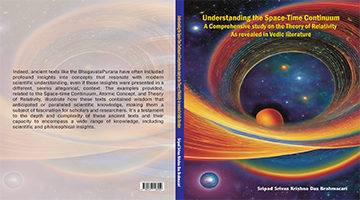
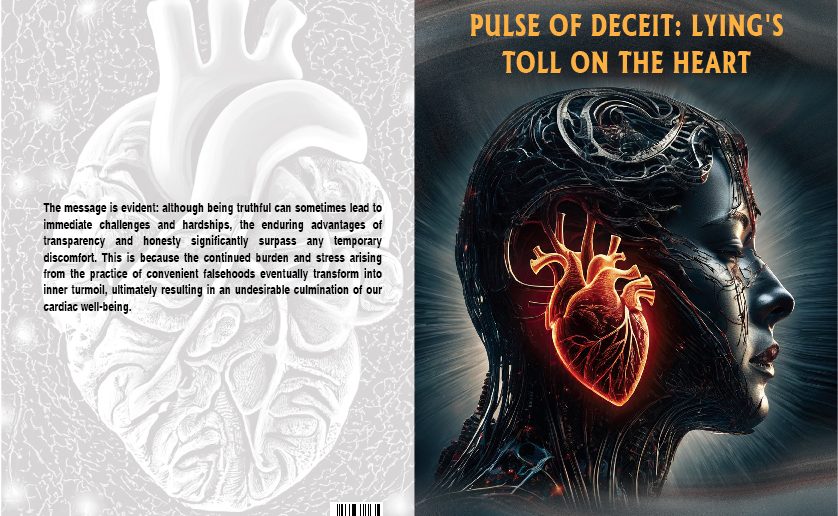









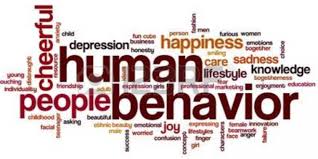

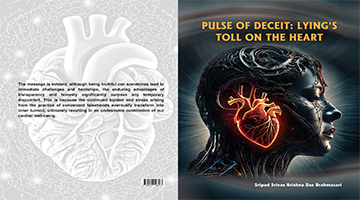






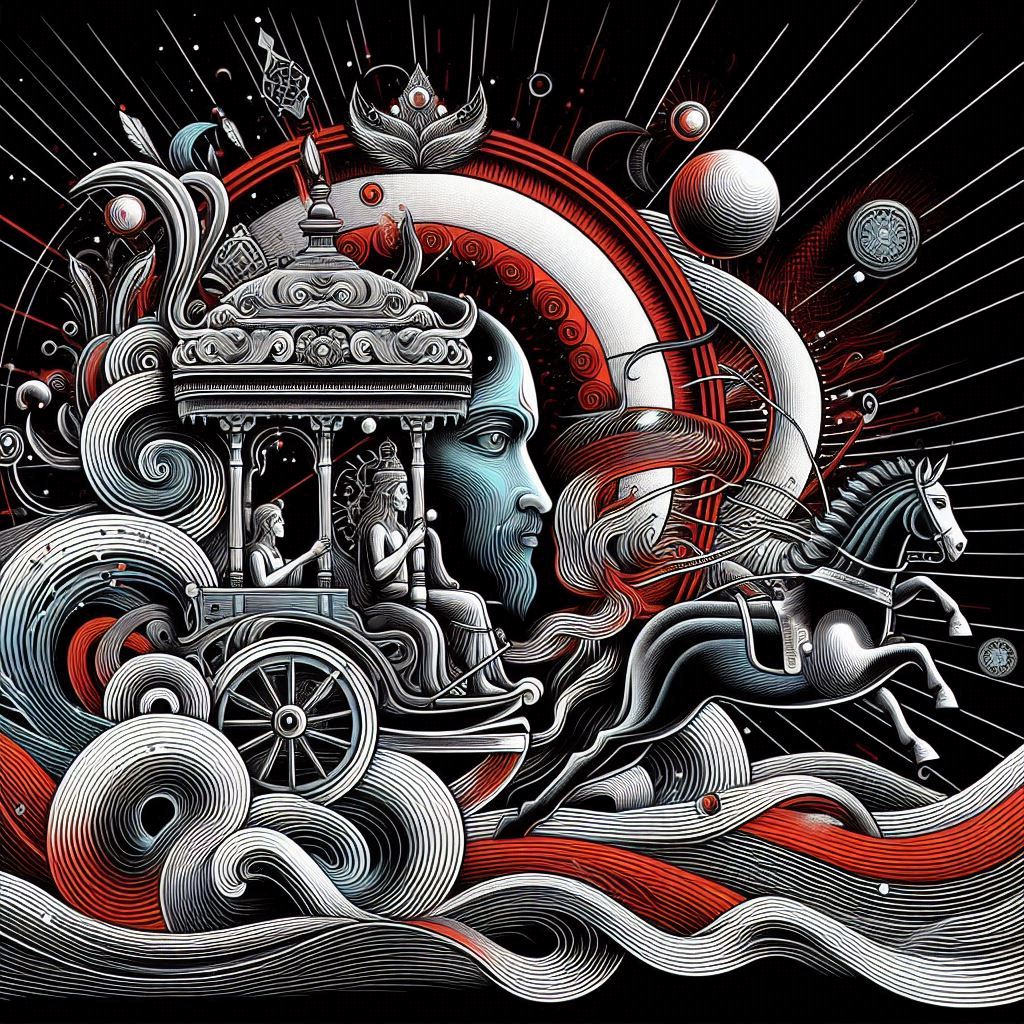








Origin of Science
Temporal Relativity in Vedic Literature: An Interdisciplinary Analysis of Time Dilation Narratives
Acharya Kaṇāda: The Ancient Sage Who Discovered the Atom
Evidence of Vedic Sanātana Hinduism as a Global Dharma
Perception of Quantum Gravity and Field Theory in the Vedas
String Theory as Mentioned in Veda
Sanskrit’s Role in Advancing AI: A Comprehensive Study
The Vedic Model of the Mind: A Contemporary Exploration
Vedic Contributions to Geometry: Unveiling the Origins of Mathematics
Matter and Consciousness in Achintya Bhedābheda: Bridging with Quantum Physics
A Comprehensive Study of Aeroplanes and Aviation in Vedic Literature
Hydrology and the Water Cycle in Vedic Scriptures
Vedic Insights on the Speed of Light